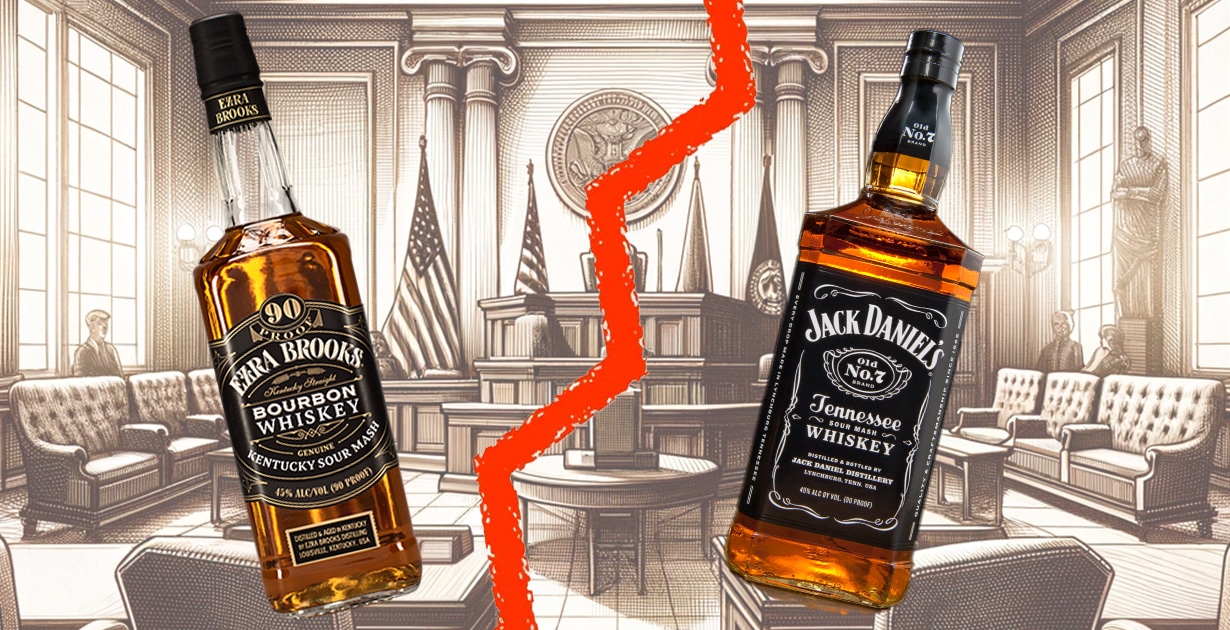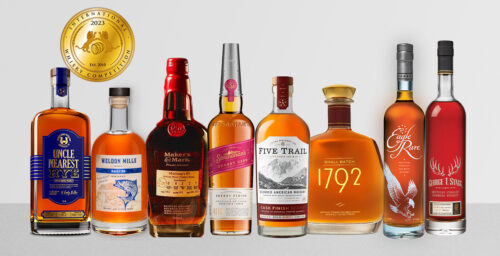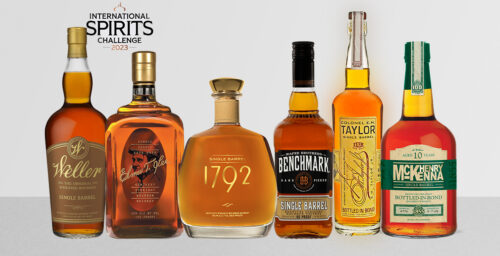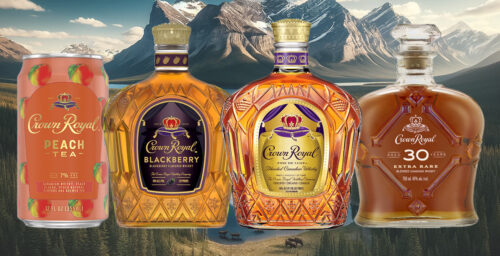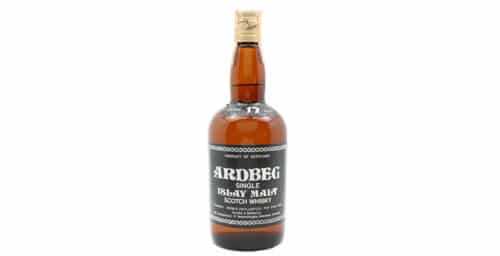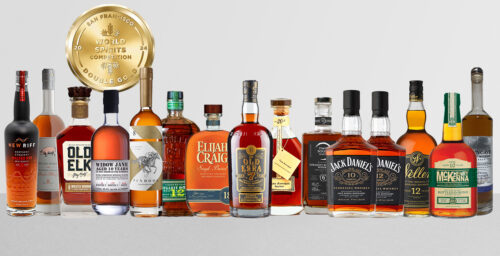The Ezra Brooks bourbon whiskey brand has a short, but interesting history. Originally launched to capitalize on the success and popularity of Jack Daniels Old No. 7, the Ezra Brooks brand bottles and labels initially closely imitated their competitor, provoking a legal battle.
This is the fascinating story of the case, Jack Daniel Distillery, Inc. v. Hoffman Distilling Co. (1960) – while exploring Ezra Brooks’s evolution from an imitator to an established whiskey brand.
The Origins of Ezra Brooks
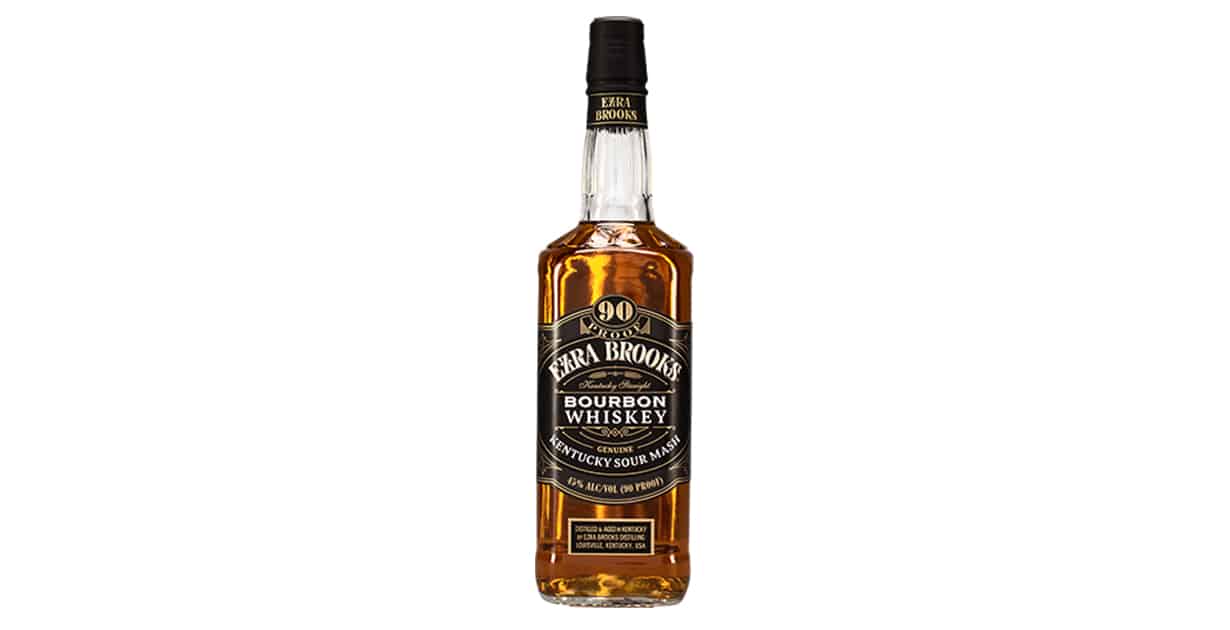
The Ezra Books brand was created by Frank Silverman of the 21 Brands distribution company in 1957. Silverman aimed to take advantage of a shortage of Jack Daniels Old No. 7, caused by surging demand.
Brian Haara, author of Bourbon Justice: How Whiskey Law Shaped America (2018), records that Jack Daniels invested $3.5 million into marketing in the early 1950s, increasing sales by 900% between 1950-56.
Alongside marketing, Jack Daniels’s growing popularity was also influenced by other factors, such as the brand being a favorite of Frank Sinatra and members of ‘The Rat Pack’ in Hollywood. By the time Brown-Forman purchased Jack Daniels in 1956, the brand was suffering a shortage requiring the distillery owners to allocate supplies to retailers.
In April 1957, Frank Silverman formed the Ezra Brooks Distilling Company. There never was a person named ‘Ezra Brooks’. The brand name was created by the 21 Brands marketing department. Silverman had created a brand without a distillery, sourcing bourbon from distilleries including the Hoffman Distilling Company in Lawrenceburg, Kentucky, where the Ezra Brooks brand was bottled.
Presented in a square bottle, featuring a black and white label, the Ezra Brooks packaging displayed more than a passing resemblance to Jack Daniels. Upon the whiskey’s release, Brown-Forman promptly sued alleging unfair competition and trademark infringement to Jack Daniels.
The case of Jack Daniel Distillery, Inc. v. Hoffman Distilling Co. (1960)
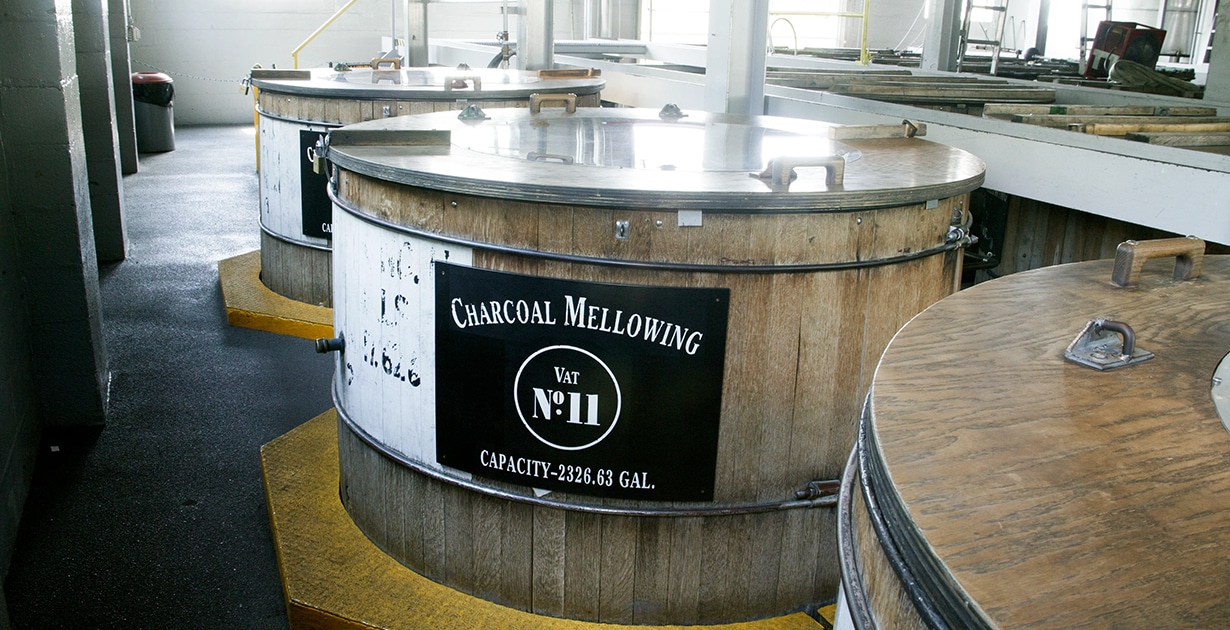
It was clear to the court that Frank Silverman, “intentionally copied and imitated the appearance of the well-established and attractive Jack Daniel’s Black Label package and advertising techniques for its new and unknown brand Ezra Brooks”.
The court identified the ways in which the brand imitated Jack Daniels, citing the similar square bottle, label, and that both were bottled at an identical 90 Proof.
Like Old No. 7, Ezra Brooks was advertised as ‘charcoal filtered’. This was not the ‘Lincoln County Process’ of charcoal mellowing used by Jack Daniels, which involves drop-by-drop filtering of the distillate through large vats filled with charcoal, to remove imperfections before maturation. The court clarified the charcoal filtration used for Ezra Brooks consisted of placing seven ounces of charcoal in four hundred gallons of aged whiskey to attract oily components to mellow the spirit, later extracting the remnants via paper filters.
From the brand’s launch in 1957, Silverman had imitated Jack Daniel’s situation by advertising that Ezra Brooks was suffering shortages. This misrepresentation of advertising was challenged by the court, which determined all evidence showed the brand’s continuing market availability – the whiskey was never in short supply.
Verdict and Aftermath
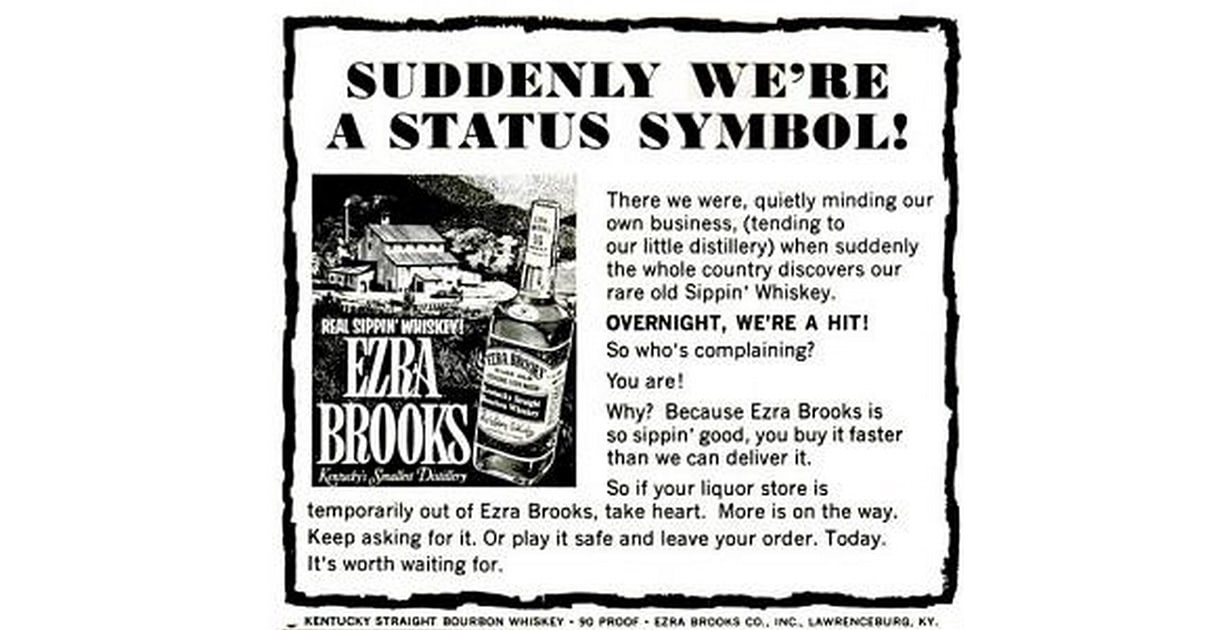
The court concluded the obvious purpose of Ezra Brooks’s blatant intimidation was to attract consumers who could not obtain Jack Daniels whiskey due to shortages. Despite this, the judge asserted, “no likelihood of confusion exists… because the two brands are clearly marked by both brand name and by source of manufacture”.
As the Ezra Brooks brand name and different state of production (Kentucky vs. Tennessee) were deemed sufficient to distinguish the product, Jack Daniels could not prove the allegation of unfair competition. In 1961, the court ruled in favor of Frank Silverman and Hoffman Distilling – despite an appeal by Brown-Forman the verdict was upheld.
Following the verdict, Frank Silverman continued to misrepresent that his whiskey was in limited supply. Brian Haara references advertisements from 1965, claiming Ezra Brooks was an overnight hit and status symbol causing brand shortages – possibly relying on the publicity of the legal case against Jack Daniels.
Ezra Brooks and the Medley Distilling Company
In 1979, the Medley Distilling Company acquired 21 Brands, including the Ezra Brooks brand. Whiskey production and bottling were transferred to Owensboro, Kentucky at the Medley Distillery.
Despite dropping claims that Ezra Brooks was in short supply, Brian Haara identifies that Medley’s management made a number of unsupported claims about the brand. The initial involvement of the Hoffman distillery was disregarded, in favor of claims the brand was first produced by Medley at Owensboro.
Under Medley’s management, the bourbon continued to be marketed as a substitute for Jack Daniels. Ensuring continuing comparison with the Old No. 7 theme, Medley alleged that the whiskey had been produced by seven generations of distillers, to maintain a number ‘7’ on the label – a false claim as the brand was created in 1957.
The Evolution of Ezra Brooks
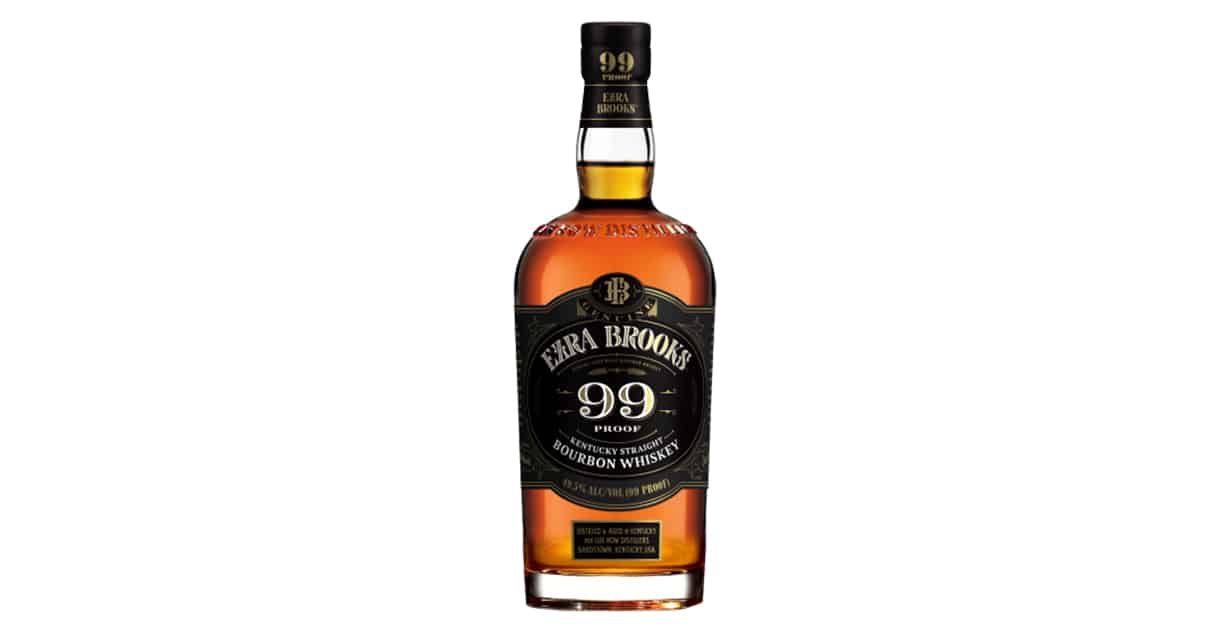
In 1988, Glenmore Distilleries acquired the Medley Distilling Company and its brands. Glenmore’s relaunched the brand to become one of the company’s flagship brands, winning a gold medal at London’s International Spirits Competition in 1989.
Ownership passed to United Distillers in 1991, and subsequently to Heaven Hill Distilleries in 1992. The David Sherman Corporation (rebranded as Luxco in 2006) purchased the brand in 1993, reaching an agreement with Heaven Hill to continue producing whiskey for the brand, alongside the distillery’s own Evan Williams and Elijah Craig brands.
As bourbon sales increased, Heaven Hill struggled to supply barrels of whiskey for Ezra Brooks alongside maintaining production for the distillery’s own brands. In 2016, Luxco built Lux Row Distillers in Bardstown, Kentucky to produce the company’s Ezra Brooks, Rebel Bourbon, and Blood Oath brands.
Lux Row Distillers has launched a range of Ezra Brooks bottlings to appeal to the modern bourbon enthusiast, including the 99 Proof, Old Ezra Barrel Strength 7-Year-Old, and a rye expression.
In January 2021, the 99 proof expression was awarded a gold medal at the American Whiskey Masters.

